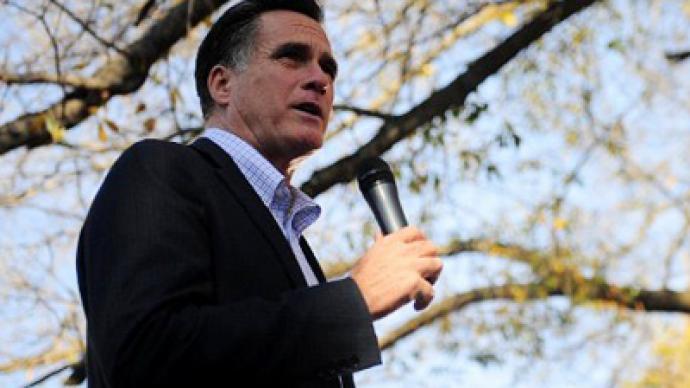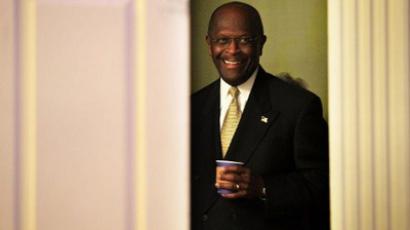Mitt Romney enjoys lower taxes than middle-class

Did it take hard work and determination for GOP presidential hopeful to become a millionaire many times over? It might have, but the fact that he paid lower the tax rate as members of the middle class didn’t help either.
Former Massachusetts Governor Mitt Romney tip-toed around the topic of his personal finances during Monday night’s Republican Party debate, but reporters covering the campaign trail in South Carolina have remained persistent in picking on Romney for his unwillingness to disclose his tax records. From the debate stage in Myrtle Beach, SC on Monday, Romney danced around questions about his income tax records, saying only that he would “probably” disclose them in the coming months but refusing to straight up insist that they would be published for the public. On Tuesday, however, a little bit more of Mitt’s personal income was revealed after some grilling by members of the media elsewhere in the state. Quizzed by reporters a day after the debate, Romney acted uncertain about how much he has been paying in taxes, but told members of the media that the figure was roughly 15 percent. In the top tax bracket, where Romney presumably belongs as a multi-millionaire, others are expected to pay 35 percent.Who does pay 15 percent? That federal tax bracket is reserved for those making under $34,000."What's the effective rate I've been paying?" asked Romney on Tuesday. "It's probably closer to the 15 percent rate than anything because my last 10 years, my income comes overwhelmingly from some investments made in the past, whether ordinary income or earned annually.”While Romney could certainly find loopholes to keep his carried interest made off of his share of Bain Capital’s profits subjected to only such a rate, the rest of his income — which annually accounts for hundreds of thousands of dollars— should be expected to be a bit higher. The tax rate for those that rake in more than $379,150 in taxable income was at 35 percent in 2011.The candidate said on Tuesday that that wasn’t all of his income, either. "I get speaker's fees from time to time, but not very much," said Romney.What constitutes “not very much”? Less than a year ago in February 2011, Romney made around $375,000 for delivering only nine speeches, roughly equating to around $41,000 per address. Per 2010 statistics obtained by the US Census Bureau, Romney was earning only around $8,000 less for each speech than what the median household income was for every wage-earner in America. Romney’s actual worth is unconfirmed, but for his role at Bain Capital he is thought to have collected a fortune to the tune of around 250 million dollars. In 2010 alone, USA Today estimated that he made upwards of $38.8 million, with half of that being taxed well below the 35 percent reserved for his class. The only thing it would seem that Mitt Romney has with the average American is that they are, somehow, paying nearly the same tax rate. Somehow, however, Romney seems to be paying even less than Middle America. Tax expert Martin Press tells USA Today, "It's dividends, capital gains and maybe a little tax sheltering" that allow Romney to get away with landing in such a low bracket. If Romney wins the race to the White House, it could be even lower.If he wins the presidency and implements his proposed tax plan during his first year in office, Mitt Romney’s 2013 taxes would be cut by nearly half of what current law calls for. Of course, a comparison isn’t all that applicable unless you assume Romney is paying what he should already. A report from Citizens for Tax Justice reveals that if Romney pays as per what his own plan calls for, Bush-era tax cuts will stay, capital gains income will continue to be taxed at 15 percent and the Medicare tax will be nixed entirely — leaving the former governor paying a little under 15 percent, total.“This doesn't even include Romney’s proposal to cut corporate taxes from 35 percent to 25 percent, which would primarily benefit wealthy shareholders like himself,” Robert McIntyre, the director of Citizens for Tax Justice, tells the Washington Post.From the debate stage on Monday, Romney was far from committed when it came to disclosing how he got away with such a low rate. “I hadn’t planned on releasing tax records because the law requires us to release all of our assets, all the things we own. That I have already released. It’s a pretty full disclosure,” said Romney. “But, you know, if that’s been the tradition and I’m not opposed to doing that, time will tell. But I anticipate that most likely I am going to get asked to do that around the April time period and I’ll keep that open.”When a debate moderator asked him for a second time if he would release his records, Romney once again refused to give a yes or no response.“I think I’ve heard enough from folks saying, look, let’s see your tax records. I have nothing in them that suggests there’s any problem and I’m happy to do so. I sort of feel like we are showing a lot of exposure at this point. And if I become our nominee, and what’s happened in history is people have released them in about April of the coming year and that’s probably what I would do,” he said.Republican rival Newt Gingrich attacked Romney at the debate, saying that the people of South Carolina need to know the facts before the vote in the upcoming primary. “So I hope you’ll put your tax records out there this week so the people of South Carolina can take a look and decide if, you know, we’ve got a flawed candidate or not,” said Speaker Gingrich.On Tuesday, Romney said he will eventually release his tax information, but did not provide a date.Romney’s refusal to come clean now has only fueled the fire that the millionaire capitalist has gone to great lengths to keep himself taxed as little as possible. In the days leading up to the South Carolina primary this weekend, it will sure to come up again in interviews, but don’t expect Romney to answer anytime soon.“No wonder he doesn’t want to disclose his tax returns before he wins South Carolina on Saturday. I don’t blame him,” Robert Lenzer of Forbes writes in a blog this week.














